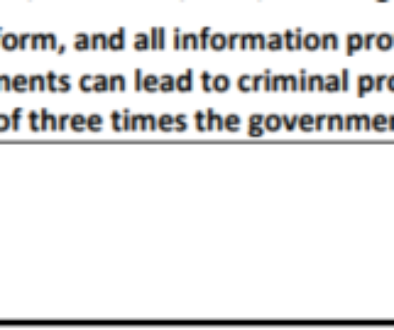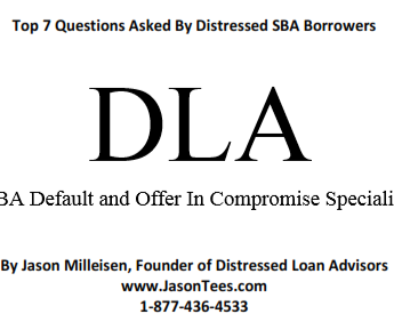I am constantly amazed and bewildered at the things that banks tell borrowers. If people’s homes and financial futures weren’t at stake, I would find it to be comical. The fact that the banker, the guy who is SUPPOSED to be the expert in this stuff, is getting it wrong is truly outrageous. Just in the last 2 weeks alone, I’ve have two separate incidents of bankers getting it completely wrong when it comes to SBA protocol.
The first incident was a client who is trying to sell his business, and following the sale, we are going to present the bank with an OIC. From the beginning, this bank has been clueless. First they led my client to believe that if they approved the sale, he would be free of any further liability (I have NEVER seen that happen) then reversed course a few weeks later. Then they told us that the OIC and sale of the business would need to be approved by the SBA. I had to remind them that for 7a loans, SBA preferred lenders can approve the sale of collateral with no SBA involvement, and that an OIC would only be considered by the SBA AFTER the sale of the assets was complete. And finally, the ultimate “scratch your head” moment came when the bank told my client repeatedly that in order for any Offer In Compromise to be consummated, his personal residence would need to be sold. My reaction when my client told me this was “wow, she could not be more wrong here”. So I proceeded to quote the SBA’s liquidation SOP (standard operating procedure) which very clearly indicated that liquidation of collateral could mean payment of cash equal to the amount of equity in a piece of real estate. The kicker to all this is that there is almost no equity in the property. To think that this banker, had I not intervened, would force a borrower to sell his house with no equity in it is shocking.
The second incident was not as egregious as the first, but nonetheless made me wonder how many borrowers have been through the ringer unnecessarily over the years because of bankers who don’t know the SBA protocol. For this one, the client had filed for bankruptcy, but there was still a lien on the property. He contacted his banker, who told him that an OIC would be required. False. Plain old wrong. The fact is that preferred lenders have the ability to make collateral decisions on their own for 7a loans with no SBA involvement at all. The difference between when the bank was telling the client needs to happened versus what actually needs to happen is huge.
I know may people look at what I do and think that they can do it themselves. An in cases when the bank is knowledgeable and fair, that might be true. The problem is, however, that unless you know the SBA rules, you as a borrower would not be able to tell the difference between a knowledgeable lender and one that is from Mars. Considering one guy was ready to sell his home because his bank told him to, I submit that as exhibit one that a guy like me can in fact add a tremendous amount of value to the process.
Distressed Loan Advisors (http://www.JasonTees.com) offers expert advice about dealing with SBA Loan Default and Forgiveness, and can be reached at . or..


